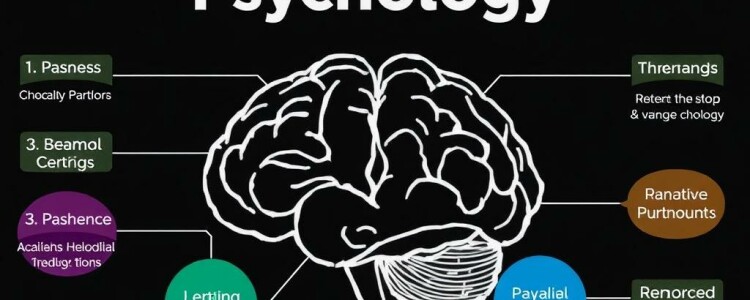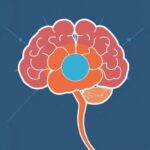Psychology is a fascinating field that seeks to understand the complexities of the human mind and behavior. It branches into various specialized areas, each focusing on different aspects of mental processes, emotions, actions, and social interactions. Whether you are curious about why people behave the way they do, how we develop over a lifetime, or how our brains function, psychology has answers waiting to be explored. The major branches of psychology provide a roadmap to understand these diverse inquiries. In this article, we will dive deep into the primary branches of psychology, breaking down their core focus, methods, and relevance in everyday life. This exploration will not only help you grasp the foundational concepts but also show how psychology shapes the modern world.
What Is Psychology? An Overview
Before we explore the major branches, let’s start with a simple definition. Psychology is the scientific study of the mind and behavior. It aims to uncover the processes behind mental functions like perception, thought, emotion, and learning, as well as observable behaviors. The discipline uses research, observation, experiments, and clinical practices to shed light on how individuals and groups function. Because human behavior is so diverse and influenced by numerous factors, psychology is naturally divided into branches that specialize in different dimensions of this broad subject.
The Major Branches of Psychology
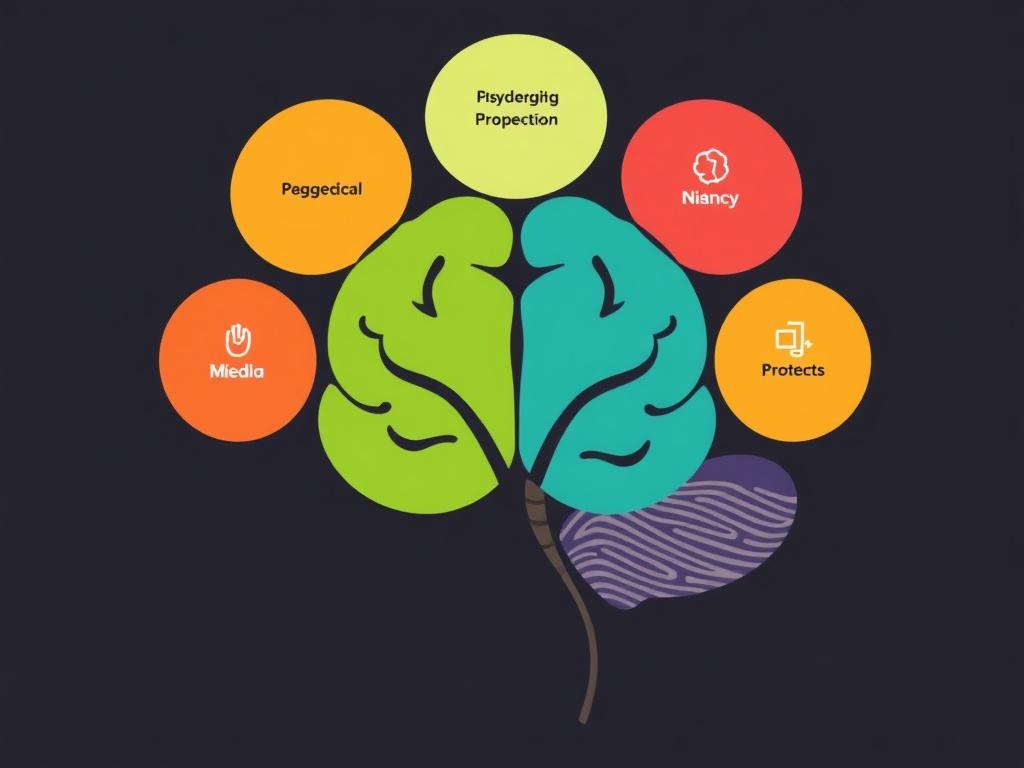
Psychology’s wide scope has led to the development of several major branches or subfields. Each branch focuses on particular subjects, techniques, or applications. Here’s a comprehensive look at the most influential branches of psychology:
1. Clinical Psychology
Clinical psychology is possibly the most well-known branch because it deals with diagnosing and treating mental illnesses and emotional disorders. Clinical psychologists work with clients to understand psychological problems such as anxiety, depression, schizophrenia, and personality disorders. They use various therapeutic techniques to help individuals manage their conditions and improve their quality of life.
Unlike psychiatrists, clinical psychologists do not prescribe medication but often collaborate with medical professionals when needed. Clinical psychology combines science, theory, and practical intervention to address mental health issues. It plays a critical role in hospitals, private practices, and community health centers.
2. Cognitive Psychology
Cognitive psychology studies mental processes like perception, memory, language, problem-solving, and decision-making. How do we process information? Why do we remember some things but forget others? This branch seeks answers to such questions by exploring how we think and learn.
Cognitive psychologists use experiments and models to understand brain functions and mental representations. Their research has practical applications in education, artificial intelligence, and improving workplace efficiency. Cognitive psychology helps us better understand human intelligence and the intricacies of daily mental activities.
3. Developmental Psychology
Human development is a lifelong journey, and developmental psychology focuses on the physical, cognitive, social, and emotional changes that happen throughout a person’s life. This branch looks at stages such as infancy, childhood, adolescence, adulthood, and aging.
Developmental psychologists study how people grow and change, examining processes like language acquisition, moral reasoning, and identity formation. Their insights are useful in shaping educational practices, parenting, and elder care. Understanding developmental psychology helps us appreciate how experiences influence who we become.
4. Social Psychology
Human beings are social creatures, and social psychology explores how individuals think, feel, and behave in social contexts. This branch investigates topics like attitudes, conformity, group dynamics, prejudice, and interpersonal relationships.
Social psychologists conduct experiments to reveal how social influences affect our actions and beliefs. Their findings have implications for marketing, politics, conflict resolution, and community building. Social psychology teaches us about the power of social environments and how they shape individual behavior.
5. Biological Psychology (or Behavioral Neuroscience)
Biological psychology examines the connection between biology and behavior. This includes studying the nervous system, brain structures, genetics, and biochemistry to determine their impact on how we think and act.
Using tools like brain imaging and physiological measurements, biological psychologists explain phenomena such as emotions, learning, and mental disorders from a biological perspective. This branch advances our understanding of the mind-body connection and informs treatments for neurological and psychological conditions.
6. Industrial-Organizational Psychology
Industrial-organizational (I-O) psychology applies psychological principles to the workplace. It focuses on improving employee performance, motivation, job satisfaction, and organizational culture.
I-O psychologists might use assessments for hiring, develop training programs, or analyze work environments. Their goal is to create healthy, productive workplaces benefiting both employees and employers. This branch bridges psychology with business and management.
7. Educational Psychology
Education is central to human progress, and educational psychology investigates how people learn and how teaching methods can be improved. This branch studies learning processes, instructional strategies, individual differences, and assessment techniques.
Educational psychologists work closely with teachers and schools to develop effective curricula and remedial programs. Insights from this branch help cater to students’ diverse needs and enhance academic achievement.
8. Forensic Psychology
Forensic psychology intersects with the legal system, applying psychological knowledge to criminal investigations, court cases, and legal processes. Forensic psychologists assess defendants’ mental states, provide expert testimony, and evaluate the reliability of witness testimony.
This branch contributes to law enforcement, jury selection, and rehabilitation of offenders. The field highlights how psychology influences justice and public safety.
9. Health Psychology
Health psychology explores how psychological factors affect physical health and well-being. This branch looks at how stress, behavior, lifestyle choices, and mental states interact with illness and health.
Health psychologists often focus on promoting healthy behavior, managing chronic diseases, and understanding patient behavior. Their work enhances health care delivery and encourages preventative medicine.
A Comparison Table of Major Branches of Psychology
| Branch | Main Focus | Common Applications | Methods Used |
|---|---|---|---|
| Clinical Psychology | Mental disorders diagnosis and treatment | Therapy, counseling, mental health clinics | Interviews, assessments, psychotherapy |
| Cognitive Psychology | Mental processes and information processing | Education, AI, memory improvement | Experiments, cognitive tests |
| Developmental Psychology | Human growth across the lifespan | Education, parenting, elder care | Longitudinal studies, observations |
| Social Psychology | Social behavior and influences | Marketing, politics, conflict resolution | Experiments, surveys |
| Biological Psychology | Brain and nervous system’s role in behavior | Neuroscience, clinical treatments | Brain imaging, physiological measurement |
| Industrial-Organizational Psychology | Workplace behavior and productivity | Hiring, training, organizational development | Surveys, performance analyses |
| Educational Psychology | Learning and teaching methods | Schools, curriculum design | Assessments, observational studies |
| Forensic Psychology | Psychology and the legal system | Criminal justice, court evaluations | Assessments, case studies |
| Health Psychology | Psychological factors in health and illness | Hospitals, health promotion | Interviews, behavioral studies |
Why Understanding the Major Branches of Psychology Matters
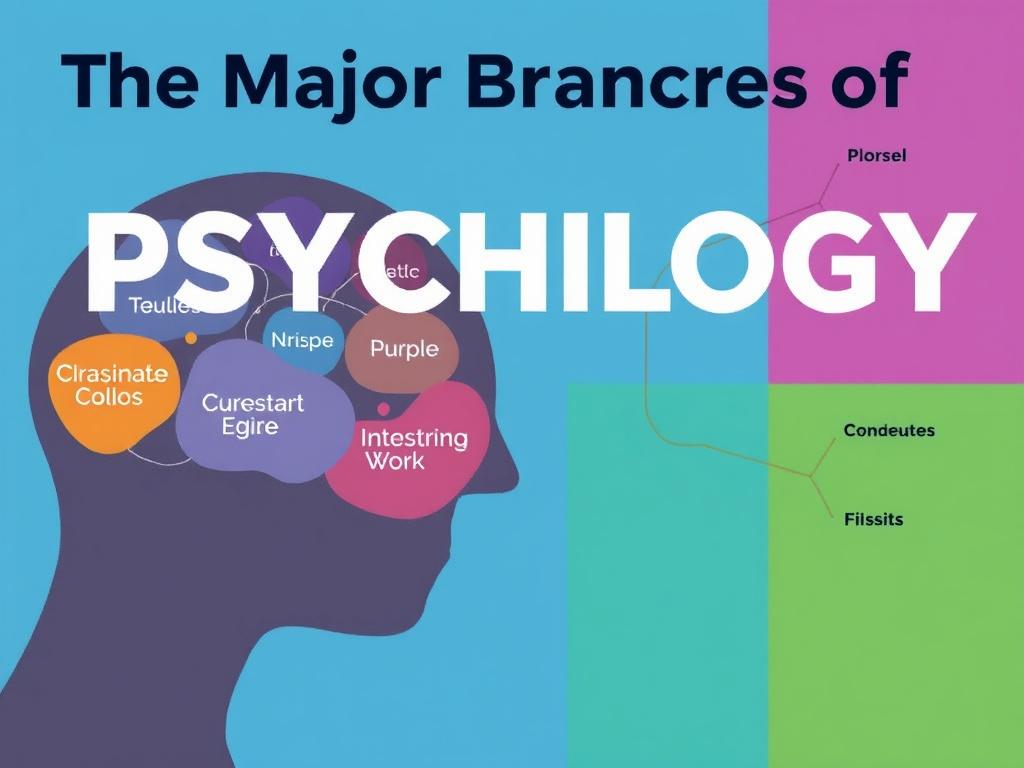
Knowing the major branches of psychology is more than academic—it’s a gateway to understanding yourself and others better. Each branch explains unique aspects of human behavior, enriching your perspective on everyday life. If you’ve ever wondered why people act in seemingly irrational ways, or how childhood experiences shape adult personality, or even how workplace motivation can be boosted, psychology provides insights.
Moreover, psychology’s branches connect with real-world problems and solutions. Mental health awareness, education reform, workplace improvements, legal fairness, and healthcare innovation all benefit from psychological knowledge. By understanding these branches, you develop empathy for different experiences and appreciate the diversity of human nature.
Careers and Opportunities in Psychology
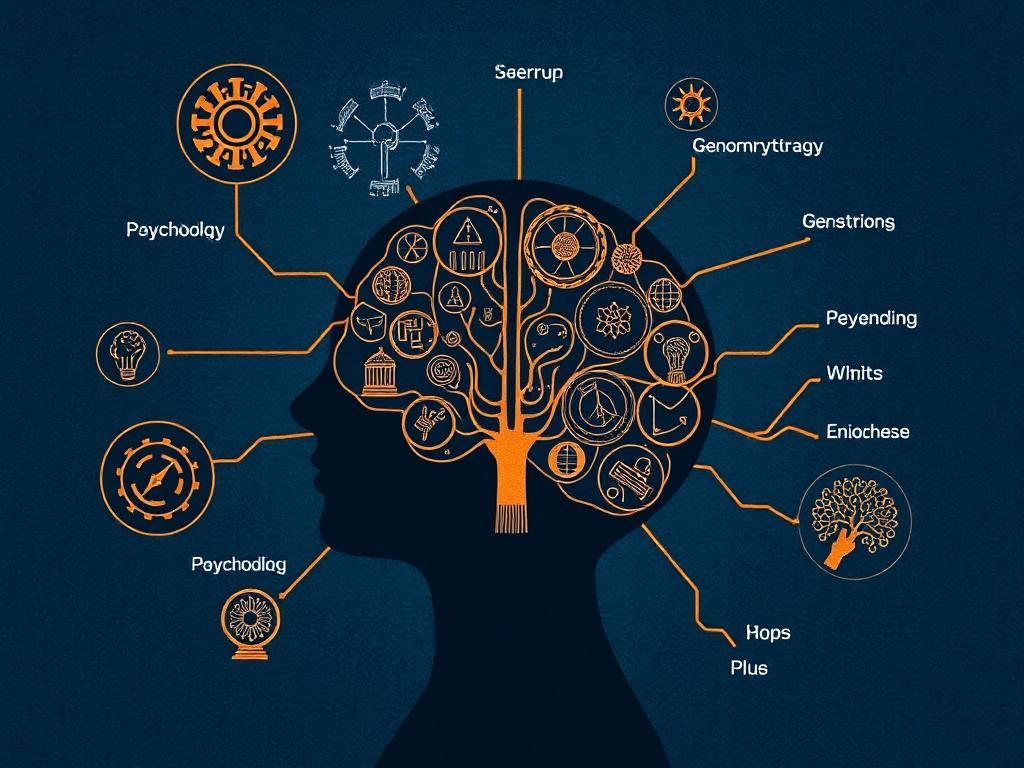
The diversity in psychology creates numerous career paths. Below is a list of common careers associated with each major branch:
- Clinical Psychology: Therapist, counselor, mental health specialist
- Cognitive Psychology: Researcher, human factors specialist, AI consultant
- Developmental Psychology: Child psychologist, educational consultant
- Social Psychology: Market researcher, social policy advisor
- Biological Psychology: Neuroscientist, neuropsychologist
- Industrial-Organizational Psychology: HR specialist, organizational consultant
- Educational Psychology: School psychologist, educational therapist
- Forensic Psychology: Criminal profiler, legal advisor
- Health Psychology: Health coach, behavioral therapist
Choosing the right branch depends on your interests and strengths. Psychology offers both research-oriented roles and hands-on clinical or applied professions, making it a flexible and fulfilling field to pursue.
The Evolution of Psychology and Its Branches
Psychology’s major branches did not appear overnight; they reflect the evolution of the field as a whole. Initially rooted in philosophy, psychology officially emerged as a scientific discipline in the late 19th century. Early pioneers like Wilhelm Wundt focused on experimental psychology, leading to the development of cognitive psychology. Freud’s psychoanalysis laid the groundwork for clinical psychology, while behaviorism influenced social and developmental branches.
Over time, advances in technology and methodology gave rise to biological psychology and health psychology. The expanding complexity of modern society added industrial-organizational and forensic branches, demonstrating psychology’s adaptive nature to cultural needs.
Understanding the history of psychology clarifies why its branches exist and highlights their ongoing development. New fields and interdisciplinary studies continue to emerge, broadening our grasp on the human mind and behavior.
Common Misconceptions About Psychology Branches
Psychology can sometimes be misunderstood, especially when it comes to its various branches. Here are a few common misconceptions:
- Psychology is just about therapy: While clinical psychology focuses on therapy, many other branches involve research, education, and business applications.
- Psychologists can prescribe medication: Only psychiatrists (medical doctors) can prescribe drugs; psychologists usually treat with psychotherapy or behavioral intervention.
- All psychologists study criminal behavior: Forensic psychology is just one branch; most psychologists work in other areas.
- The brain and mind are the same: Biological psychology shows the brain’s role, but psychology also studies the mind’s abstract functions beyond neural activity.
Clearing misconceptions helps appreciate the broad and nuanced nature of psychology’s branches.
How to Choose Which Branch of Psychology Interests You Most
If you are a student or simply curious, deciding which branch of psychology calls to you can be exciting yet challenging. Here are some questions to consider that can help you decide:
- Do you enjoy helping people cope with personal struggles? Clinical psychology might appeal to you.
- Are you fascinated by how the brain works or how genetics influence behavior? Biological psychology could be a good fit.
- Do you want to understand social interactions and group behavior? Explore social psychology.
- Are you interested in educational systems and how people learn? Consider educational psychology.
- Do you want to combine psychology with business? Industrial-organizational psychology may be ideal.
- Are you drawn to the legal system and criminal behavior? Forensic psychology awaits.
Keep in mind that psychology is interdisciplinary, so many branches overlap. You can even specialize further within these fields.
Future Trends in Psychology Branches
The future of psychology is bright and constantly evolving. Emerging technologies such as artificial intelligence, neuroimaging, and virtual reality are transforming research and practice across branches. Areas like cognitive psychology are advancing rapidly with AI, while health psychology is integrating digital health tools.
Additionally, societal challenges, such as mental health crises and workplace stress, ensure clinical and industrial-organizational psychology remain vital. Interdisciplinary approaches combining psychology with genetics, data science, and cultural studies will create new branches or subfields.
For those passionate about the mind and behavior, psychology’s evolving branches offer endless opportunities for discovery and impact.
Conclusion
Psychology’s major branches represent a vast and varied landscape of knowledge, each shedding light on different facets of the human experience. From clinical psychology’s focus on mental health to cognitive psychology’s exploration of thought processes, and from social psychology’s study of relationships to biological psychology’s investigation of brain mechanisms, these branches collectively deepen our understanding of who we are and why we behave the way we do. Whether you seek answers for personal curiosity, academic pursuits, or a professional path, understanding these branches equips you with valuable insights to navigate life more thoughtfully. As psychology continues to grow and adapt, its diverse branches will remain essential tools for improving wellbeing, fostering empathy, and solving complex human problems across the globe.

